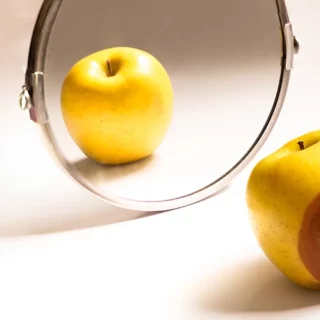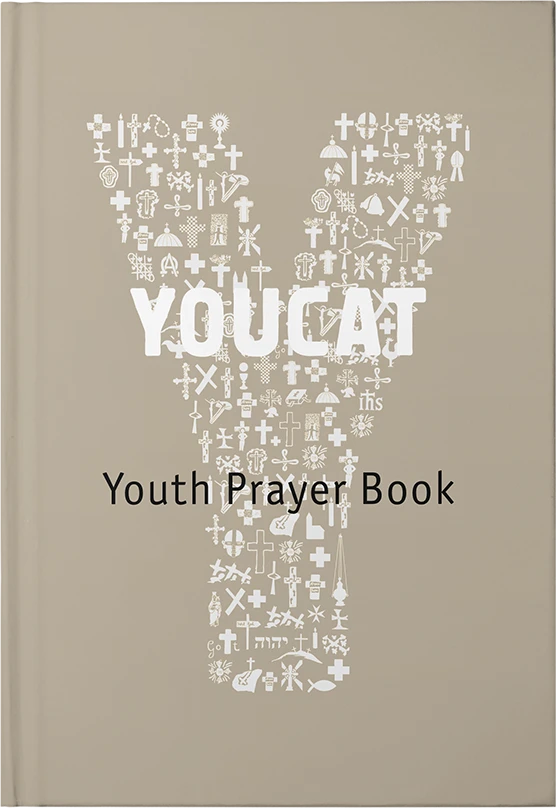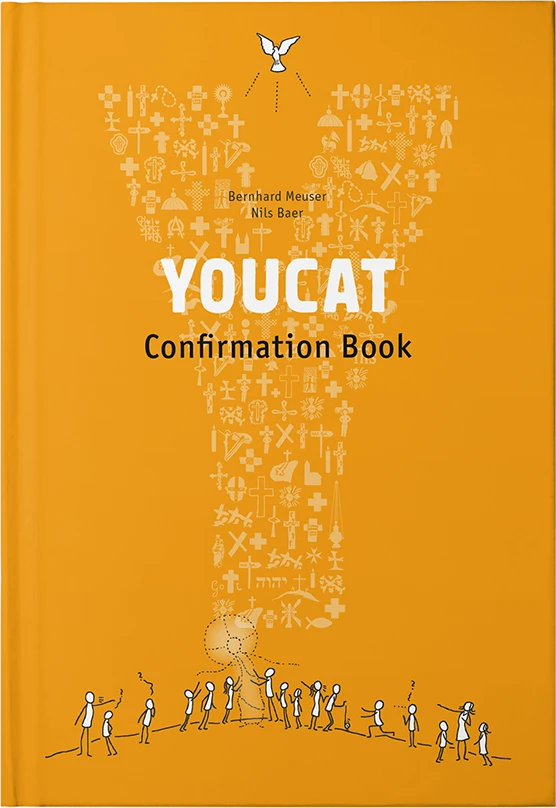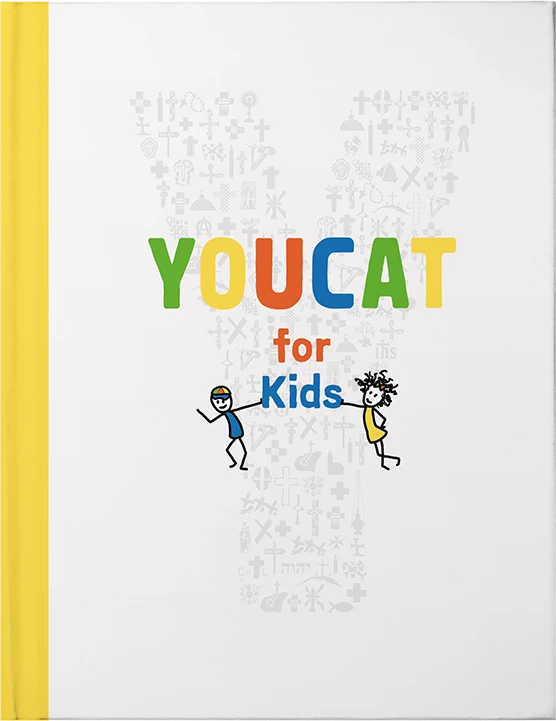

Credopedia
Blessing
Blessing is the good that comes from God. Find out more about blessings and how it is based on the Bible.
Definition
Blessing/to bless
“A blessing,“ says the YOUCAT, “is something good that comes from God (Latin bene-dicere; Greek eu-logein = to call good); to bless is a divine, life-giving, and life-preserving action. God, the Father and Creator of all being, says: It is good that you exist. The fact that you are is something beautiful.“ (YOUCAT 170) Blessing means to pray that good comes from God to another person, thing or process. The opposite — the curse — is an attempt to block God’s grace or to keep it away from people, things or processes. All baptized and confirmed Christians can ask for blessings (lat. bene-dicere = to say good things). “A prayer of blessing,“ as the YOUCAT says, “is a prayer that calls down God’s blessing upon us. From God alone all blessings flow. His goodness, his closeness, his mercy—that is a blessing. ‘May the Lord bless you’ is the shortest prayer of blessing.“ (YOUCAT 484) Because bishops and priests represent Christ, Christ blesses us through them. This is particularly expressed in the Eucharistic blessing with the Blessed Sacrament in the monstrance. But for all, “I will bless you … so that you will be a blessing.“ (Gen 12:2)
What does the Holy Bible say?
As early as the creation story, God appears with this blessing: “God blessed them, saying: Be fertile, multiply, and fill the water of the seas; and let the birds multiply on the earth.“ (Gen 1:22) The blessing of God over Abraham is of particular importance: “I will bless you; I will make your name great, so that you will be a blessing.“ (Gen 12:2) The same is true of the blessing that Jacob gives to the twelve tribes of Israel (Gen 49:1-28). The most famous and beautiful blessing formula in the Old Testament is the Aaronite blessing, in which God speaks to Moses saying: “The LORD bless you and keep you! The LORD let his face shine upon you, and be gracious to you! The LORD look upon you kindly and give you peace! So shall they invoke my name upon the Israelites, and I will bless them.“ (Num 6:24-27) In the book of Deuteronomy, God respects the freedom of man: “I have set before you life and death, the blessing and the curse. Choose life, then, that you and your descendants may live.“ (Dt. 30:19) In the New Testament, we are fully aware of what the good that flows to us consists of: “Blessed be the God and Father of our Lord Jesus Christ, who has blessed us in Christ with every spiritual blessing in the heavens, as he chose us in him, before the foundation of the world, to be holy and without blemish before him.“ (Eph 1:3-5)
A short YOUCAT-Catechesis
From the power of blessing
Some think the Pope is a “sponti“ – always good for a surprise. If you lift your baby high enough in St. Peter’s Square, you have to expect that the head of the Catholic Church, moved by tender feelings, will break protocol and bless them. Or perhaps the phone will ring in an ice cream parlour in Abbruzzi: “This is the Pope; about your ice cream – it’s really good! Which ice-cream maker would not feel blessed. “
The last resort
But what the Pope did when the Corona pandemic shook Italy around Easter was particularly unusual: As rain fell from the blue-grey night sky on the deserted St. Peter’s Square and dripped down from the ancient plague cross of San Marcello, the Pope dragged himself up the steps, alone, towards the Blessed Sacrament. “Francis wavers with the golden load towards the open gate of the Church of the Holy Sepulchre of the Apostle Peter. … Rome’s bells begin to ring, the blue lights from the edge of the piazza flicker up to him … It pours and pours, as the pontiff in the gate of St. Peter’s, silently blesses the city of Rome, Europe and the world against the darkness and three times with the ‘eucharistic face’ of God, shining.“ (Paul Badde) The papal blessing “urbi et orbi“ is usually given only twice a year. But now, during a global pandemic, the Pope opts for the last resort. He has made himself small and, with his feeble arms, lifts up the one from whom all blessings, all salvation comes. A moment for the history books! That there is still something very special about the Eucharistic blessing is something that pilgrims in Lourdes experience when they hear that most of the healing miracles there do not take place in front of the grotto or in the water bath, but when a priest or bishop carries the Blessed Sacrament through the crowds. Of the 7,000 or so cases submitted to the Medical Bureau so far, the Commission has recognized 70 as “miracles” after the most stringent tests: Cancer in its final stage healed, dead eyes that see again, eaten bones that grow back. Any doctor can study the radiographs for himself. Thus, the blessing becomes tangible, despite the fact that many consider it to be just an insubstantial wish or ritualistic nonsense.
We are blessed and may bless
Sometimes I have a strange thought: This monstrance with the Blessed Sacrament, this most powerful divine sign of power and victory — wouldn’t it be necessary to lift it up like Robert Lewandowski lifts the Champions League Cup? We, the fans, might even sing “We are the Champions!” Our cheers would be inflamed by the ancient hymn from the letter to the Ephesians: “Blessed be the God and Father of our Lord Jesus Christ, who has blessed us in Christ with every spiritual blessing in the heavens.” (Eph 1:3) In any case, we belong to the great victors, are blessed and are allowed to bless. And every time we draw the sign of power, protection and victory in the shape of the cross on the forehead of a small child, a jubilant cry of joy should rise up within us in view of the blessing that flows through our thumb onto this child.
The wire that is you and me
We are not spiritualists, we are not magicians; we do not bring the blessing out of ourselves. We are only channels, transmitters, power lines. In YOUCAT 259 it says: “Through Baptism Christ has made us into a kingdom of ‘priests to his God and Father’ (Rev 1,6). Through the universal priesthood, every Christian is called to work in the world in God’s name and to bring blessings and grace to it.” This raises the question: “Why don’t we constantly call down blessings on this world?” St. Mother Teresa gave us a wonderful parable on this subject: “Often you can see wires lining the road. Until electricity flows through them, there is no light. The wire, that is you and me! The electricity is God! We have the power to let the electricity flow through us and thus create the light of the world: JESUS — or refuse to be used and thus allow darkness to spread.”

YOUCAT Digital
Discover our digital products, which will help you to grow in faith and become missionaries yourself.







